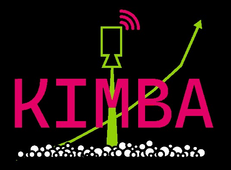
Research Departments
- Agents and Simulated Reality 17
- Augmented Vision 5
- Cognitive Assistants 11
- Cognitive Social Simulation 4
- Cooperative and Autonomous Systems 6
- Cyber-Physical Systems 4
- Data Science and its applications 1
- Embedded Intelligence 6
- Experience-based Learning Systems 1
- Innovative Factory Systems 10
- Institute for Information Systems 4
- Intelligent Analytics for Massive Data 1
- Intelligent Networks 3
- Interactive Machine Learning 1
- Marine Perception 23
- Multilinguality and Language Technology 4
- Robotics Innovation Center 21
- Smart Data & Knowledge Services 14
- Smart Enterprise Engineering 6
- Smart Service Engineering 2
- Speech and Language Technology 3
Research Topics
- Autonomous Systems 35
- Data Management & Analysis 38
- Human-Machine Interaction 22
- IT Security 6
- Image Recognition & Understanding 23
- Language & Text Understanding 9
- Machine Learning & Deep Learning 59
- Other 31
- Robotics 25
- Sensors & Networks 51
- Virtual & Augmented Reality 10
Fields of application
- Environment & Energy
- Farming & Agricultural Technology 17
- Financial Sector 7
- Health & Medicine 19
- Industrie 4.0 27
- Knowledge & Business Intelligence 8
- Learning & Education 8
- Mobility 21
- Other 25
- Smart Home & Assisted Living 17
- Trade & Logistics 10
Displaying results 11 to 20 of 119.
Research Departments
- Agents and Simulated Reality 17
- Augmented Vision 5
- Cognitive Assistants 11
- Cognitive Social Simulation 4
- Cooperative and Autonomous Systems 6
- Cyber-Physical Systems 4
- Data Science and its applications 1
- Embedded Intelligence 6
- Experience-based Learning Systems 1
- Innovative Factory Systems 10
- Institute for Information Systems 4
- Intelligent Analytics for Massive Data 1
- Intelligent Networks 3
- Interactive Machine Learning 1
- Marine Perception 23
- Multilinguality and Language Technology 4
- Robotics Innovation Center 21
- Smart Data & Knowledge Services 14
- Smart Enterprise Engineering 6
- Smart Service Engineering 2
- Speech and Language Technology 3
Research Topics
- Autonomous Systems 35
- Data Management & Analysis 38
- Human-Machine Interaction 22
- IT Security 6
- Image Recognition & Understanding 23
- Language & Text Understanding 9
- Machine Learning & Deep Learning 59
- Other 31
- Robotics 25
- Sensors & Networks 51
- Virtual & Augmented Reality 10
Fields of application
- Environment & Energy
- Farming & Agricultural Technology 17
- Financial Sector 7
- Health & Medicine 19
- Industrie 4.0 27
- Knowledge & Business Intelligence 8
- Learning & Education 8
- Mobility 21
- Other 25
- Smart Home & Assisted Living 17
- Trade & Logistics 10






